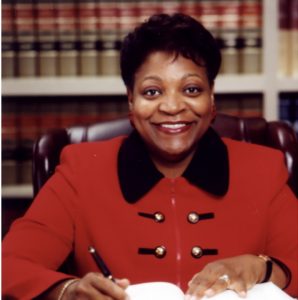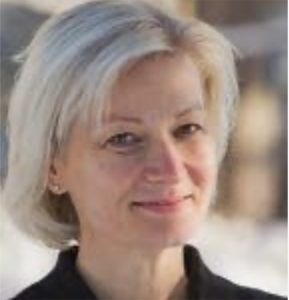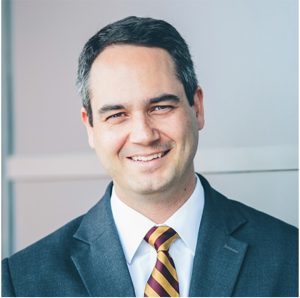Thursday, November 21, the team of appellate lawyers representing Mark Ridley-Thomas will argue his case before the 9th Circuit Court of Appeals.
The hearing will be held at 9:30 a.m. in the Richard H. Chambers U.S. Court of Appeals building, which is located in a scenic area of Pasadena.
There, a three-judge panel will hear the presentation by the defense, and then the prosecution will have its turn.
The jurists who make-up the panel appear to be an interesting and diverse trio. In the order in which they were appointed by various U.S. presidents, they are as follows:
Judge Johnnie B. Rawlinson
Judge Johnnie B. Rawlinson, a circuit judge whose chambers are in Las Vegas, NV, was appointed in July 2000 by President Bill Clinton. Twenty-four years later, Judge Rawlinson is still the only Black woman on the 9th, a position that is only one of the long list of firsts that have shaped her legal career. For example, in 1980, Rawlinson and another lawyer became the first Black women ever admitted to the Nevada bar to practice law in the state, and there were plenty of other firsts after that.
Being a pioneer, unsurprisingly, has brought joys and also complications.

In 2019, when Rawlinson was invited to speak at an event put on by the Ninth Judicial Circuit Historical Society she was asked by the event’s moderator what she wished she had known earlier in her career. Judge Rawlinson reportedly answered right away, telling the crowd that she wished she’d known years ago that she could be “a lot more aggressive and still be successful.”
According to Judge Rawlinson, this perception was often shared by those who made up the “first generation of women lawyers.”
Judge Morgan Christen
Number two of the three on the panel is Circuit Judge Morgan Christen, whose chambers are located in Anchorage, AK. Appointed in 2012, by Barack Obama, Christen is the first woman from Alaska to sit as a judge on the Ninth Circuit.

In addition to her talents as a jurist, it seems Christen is a skilled essayist.
Here, for example, is the opening paragraph of an essay titled “We Can Do Better,” that Christen wrote in August of this year for the American Bar Association:
“Much has been written in the past few years about the public’s loss of confidence in the judiciary. Some say the problem is gender or racial bias; some observe that the high cost of legal services leaves many litigants at an economic disadvantage, and others express concern that courts are increasingly political. Whether polls accurately capture the reasons for the public’s loss of confidence or not, they regularly indicate that the public does not know enough about how courts function.”
Last year, when on a speaker’s panel at Berkeley Law, Christen addressed the issue another way.
“The mission for courts is to get the law right,” Christen said. “Politics need to stay out of our decisions, which is even more important now during these politically charged times. I sign off on decisions every week that I don’t necessarily like, but that’s the law and I have to enforce it.”
Judge Anthony Johnstone
The third and most recently appointed of the three panel members is Circuit Judge Anthony Johnstone, whose chambers are located in Missoula, MT.
A popular law professor at the Blewett School of Law at the University of Montana, Johnstone was nominated to the court in September of 2022, by President Joe Biden, but did not get his actual commission to the 9th until May of 2024.

Prior to his recent appointment to the 9th Circuit, Johnstone spent years representing the State of Montana in federal and state constitutional cases, which meant he often appeared before the 9th Circuit, and/or the US Supreme Court.
On that topic, before we return to the details of what will occur in the upcoming hearing, it may be worthwhile to take a quick detour to look at one of the cases that Johnstone argued in the past for the Big Sky state.
The case, which he argued more than a decade ago, had to do with a challenge to what is known as the Montana Corrupt Practices Act, a statute that originally became law in the state in 1913, in order to prohibit corporate contributions to the political campaigns of public officials.
When the statute was challenged 99 years after its birth, the State of MT, argued that the law grew out of Montana’s “unique history of corporate political corruption,” which was an artifact of the notorious struggles for power by the state’s nineteenth century copper mining interests. This history, the state argued, distinguished the state’s corruption statute from the controversial 2010 ruling by the U.S. Supreme Court, known as Citizens United, which held that political donations from corporations were a form of free speech, thus permissible under the U.S. Constitution.
In a 5–2 vote, the Montana Supreme Court agreed with the argument made by Johnstone in behalf of the State of MT.
Those challenging the statute however, appealed the matter to The U.S. Supreme Court, where the Supremes’ conservative majority, held that the 2010 Citizens United ruling trumped the 1913 Montana law.
All of the above brings us back Thursday morning’s appeal, and the arguments that the defense and the government will be presenting to the panel of appellate judges listed above.
Here is a quick reminder of what the panel will hear.
The appeal
In late January of this year, the defense filed their initial appeal of the conviction of their client with the 9th Circuit in the form of a 102-page brief describing their case. You can can find more details on that January filing here. in Part 9 of this series
Then in April 2024, the prosecution responded with their own brief, which was even longer than that of the defense, coming in at 129-pages.
There was, however, one weird element to the government’s response, which you can find described in Chapter 10.
Here’s the short description of the prosecution’s unusual approach:
In order to counteract the attack by the defense on Ridley-Thomas’s conviction for the charge of bribery, in their April 2024 brief the government elected to reimagine the core theory of the bribery/corruption case they filed against Mark Ridley-Thomas on October 13, 2021, which resulted in his conviction.
This meant that, instead of defending case that the feds presented to the jury in March 2023, which resulted in seven guilty verdicts, in their April filing, the feds appeared to be saying to the 9th, “if you don’t like the theory of guilt that we used to convict the defendant, a theory that the defense has portrayed as problematic, we’ve got a nice new legal theory that you might like better, even though it wasn’t the theory we presented to the jury.”
Then, if the above was not complicated enough, on June 26, of this year, a completely unexpected element entered the legal picture when it came to Mark Ridley-Thomas’s appeal to the 9th.
This new element arrived courtesy of the Supreme Court of the United States. It came in the form of one of the end-of-term decisions that the U.S. Supreme Court handed down in June of this year.
Enter Snyder
As avid SCOTUS-watching readers may remember, the most notable of those decisions was the extremely controversial ruling on presidential immunity for president-elect Donald Trump.
Yet, there were a couple of other rulings that also stood out among the June 2024 decisions by the Supremes, one of which the decision on the case known as Snyder vs. The United States of America.
It is this decision that both the appellate team and the government prosecutors believe could have an effect on the Ridley-Thomas case.
You can find our coverage of the defense team’s response to Snyder in Chapter 11
But, here’s a short version to freshen everyone’s memories.
The Snyder decision was the result of a case brought to the court by James Snyder, the former mayor of Portage, Indiana, who was charged with violating what is known as Section 666 (§666) of the federal criminal code that was passed by Congress in 1984, and subsequently signed into law by President Ronald Reagan.
Among other things, prior to the Snyder ruling, §666 barred state and local government officials from “corruptly” accepting “anything of value” with the intention of being “influenced or rewarded” for an official act.
Mr. Snyder’s actions collided with §666 in 2014, when he was still Portage’s mayor. The problem began when Snyder and Portage placed two orders with a local Peterbilt truck dealership for a bunch of new trash trucks, which the city genuinely needed.
The two orders combined added up to $1 million. After the final truck deal was completed, the Peterbilt dealership gave Mayor Snyder $13,000, which Snyder characterized as a payment for “consulting services,” and not a bribe.
When federal prosecutors learned of the fiscal sequence of events, they disagreed with Snyder’s characterization of the exchange, and charged him with accepting an “illegal gratuity,” which carried, at the high end, a ten year prison term.
Snyder was convicted in federal court, and sentenced to 21 months in federal lock-up.
He appealed his conviction to the Seventh Circuit Court of Appeals, which declined to reverse the jury’s decision. So, Snyder took his case to the U.S. Supreme Court, which agreed to hear the case.
On June 26, 2024, the Supremes reversed the Seventh Circuit in a 6-3 ruling, which broke along ideological lines, with Justice Ketanji Brown Jackson dissenting, joined by Justices Sotomayor and Kagan.
“Federal and state law distinguish between two kinds of payments to public officials—bribes and gratuities,” wrote Justice Brett Kavanaugh in the majority ruling.
“As a general matter, bribes are payments made or agreed to before an official act in order to influence the official with respect to that future official act. American law generally treats bribes as inherently corrupt and unlawful.”
But, according to Kavanaugh and five of the court’s additional justices, the law’s treatment of gratuities is intended to be more nuanced than it is often interpreted, as illustrated by the Second Circuit’s ruling.
“Gratuities are typically payments made to an official after an official act as a token of appreciation,” wrote Kavanaugh, “Some gratuities can be problematic. Others are commonplace and might be innocuous. A family gives a holiday tip to the mail carrier. Parents send an end-of-year gift basket to their child’s public school teacher. A college dean gives a college sweatshirt to a city council member who comes to speak at an event….”
(Well, yes. But it Snyder’s case, the gratuity was 13 grand.)
As those examples suggest, Kavanaugh continued, “gratuities after the official act are not the same as bribes before the official act. After all, unlike gratuities, bribes can corrupt the official act— meaning that the official takes the act for private gain, not for the public good. That said, gratuities can sometimes also raise ethical and appearance concerns. For that reason, Congress, States, and local governments have long regulated gratuities to public officials.”
The government—national or local—concluded Kavanaugh, was asking the Supremes to adopt “an interpretation of §666 that would radically upend gratuities’ rules and turn §666 into a vague and unfair trap for 19 million state and local officials. We decline to do so.”
And that was basically that in the majority’s opinion.
(Interestingly, the Snyder decision has the effect of de-criminalizing conduct by public officials, that is alsoexpressly permitted under California state law, a fact that was discussed in depth in one of the amicus briefs filed in Ridley-Thomas’s behalf. But more on that another time.)
Post Snyder filings
On June 28, two days after the Supremes ruled on Snyder on June 26, MRT’s lawyers filed with the 9th what is known as a “Notice of Supplemental Authority.”
In their filing, the appellate team listed the ways in which the Snyder ruling arguably has a direct bearing on the arguments raised by the defense in January, when they originally filed Ridley-Thomas’s appeal.
For those who don’t remember, MRT was not convicted for receiving any money as a gratuity, or anything of monetary value. According to the government, in exchange for a vote on the renewal of an already existing contract that involved the USC School of Social work, the aging dean of the School, whom Ridley-Thomas had known for years, did a favor for the then member of the Los Angeles County Board of Supervisors, which the government contends was criminal. (You can jump-start your memory the details of this long-and-winding legal tale here in Chapter 10.)
Pre-Snyder, the appellate team had an impressive list of reasons why Ridley-Thomas should be retried, or fully acquitted. But the appearance of the U.S. Supreme Court’s Snyder decision, opened a whole new set of arguments as to why the government’s case was fatally flawed.
“In Snyder v. United States, the Supreme Court clarified the scope of the federal-programs bribery statute, and held that it prohibits bribes, but not gratuities,” wrote the appellate team’s Alyssa Bell.
Snyder, “makes clear,” appellate attorney Bell continued, “that the government’s ‘monetization’ theory, which told jurors that receipt of a gratuity was ‘still bribery,’ was “legally invalid as to all counts.”
Things were made worse, wrote Bell, when, during the trial of Ridley-Thomas, the federal judge overseeing the trial, gave instructions to the jury that, “failed to distinguish bribes from gratuities,” despite Ridley-Thomas’s attorneys’ request for an instruction that “correctly stated the law.”
Now the Snyder decision has further weighed in on the law in question, Bell wrote, dictating among other things, “that § 666 requires proof of a quid pro quo.”
Thus the fact that the district court judge refused—despite Ridley-Thomas’s team’s objection during trial—to instruct the jury on § 666’s quid pro quo requirement, was a critical problem, according to Bell and the appellate team.
The government’s filings argue otherwise.
Now, on Thursday morning, at 9:30 a.m., the matter will be presented to judges Rawlinson, Christen, and Johnstone.
So stay tuned.
Post Script: For those who want to read or re-read the series from the beginning, here is a link that will take you to the previous eleven chapters:
https://witnessla.com/category/seekingjustice/

